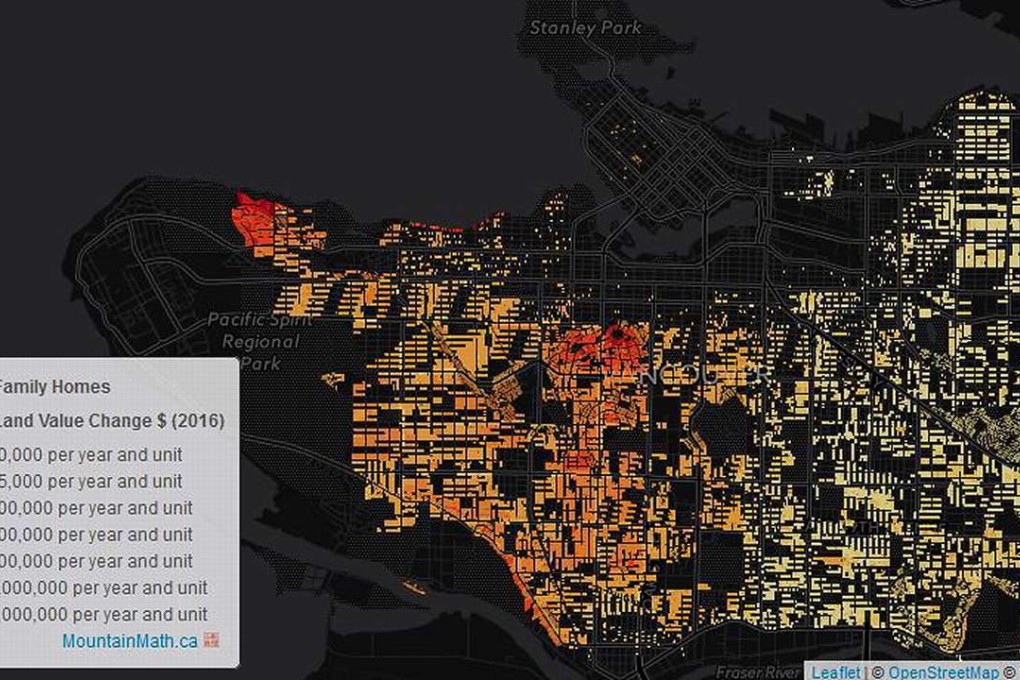The Hongcouver | In Vancouver, house owners made more sitting on their assets than entire population did by actually working last year
Rising land value of single family homes made owners about C$25billion in 2015 in Vancouver, exceeding all employment income in the city, according to mathematician Jens von Bergmann

Top-paying jobs aren’t easy to come by in the City of Vancouver, which partly explains its spiralling unaffordability. But there are at least 75,000 tireless workers here who last year made the incredible average rate of C$126 per hour.
Sadly, these workers are not among the city’s human inhabitants.
They are its single-family homes.
In fact, the quiet efforts of these houses (or, more accurately, the dirt on which they sit) were rewarded so handsomely last year that they made their owners about C$25 billion, compared to an estimated C$19 billion in citywide employment earnings.
That’s right: the owners of single-family houses in Vancouver made more by sitting on their assets than everyone in the entire city did by actually going to work.

